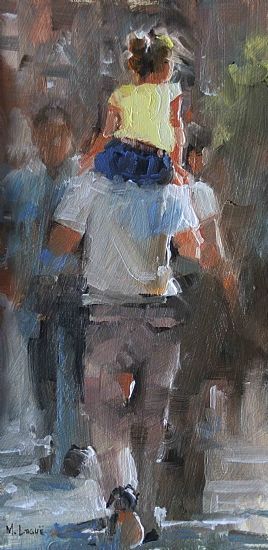

Everyone who reads MacDonald knows that whether it is fantasies, novels, or sermons, MacDonald was singularly focused on revealing the Father Heart of the Divine! Every introduction or biography I have read, one way or another, expresses Fatherhood as the central theme of his life and work. Recognizing this focus makes finding the thesis of the “Unspoken Sermons” quite simple. It is “Abba, Father!” Interestingly, it is at the dead center of the three series and of the thirty-six sermons published over a twenty-year period.
MacDonald teaches as Isaiah says God does in chapter twenty-eight verse ten, “He is trying to teach us letter by letter, line by line, lesson by lesson.” MacDonald says, “I do not say this as some doctrinal truth, for I aim at no such logical certainty. Rather than prove, I aim to show, using my thoughts progressions to reveal the ideas I am relating.” “Child” Paraphrase
MacDonald would have us all drawn into the big-picture reality of the Divine as C. S. Lewis was in his testimony in Surprise by Joy.
“But now I saw the bright shadow coming out of the book [Phantastes] into the real world and resting there, transforming all common things and yet itself unchanged. Or, more accurately, I saw the common things drawn into the bright shadow. Unde hoc mihi? [Why am I?] In the depth of my disgraces, in the then invincible ignorance of my intellect, all this was given me without asking, even without consent. That night my imagination was, in a certain sense, baptized; the rest of me, not unnaturally, took longer.”
Continue Reading Introduction . . .
NOTE: Because MacDonald wrote the sermons in chiastic form. I recommend your read The Child in the Mist, Abba, Father!, and then The Inheritance to get the largest possible context before moving on to The Consuming Fire and beyond.
